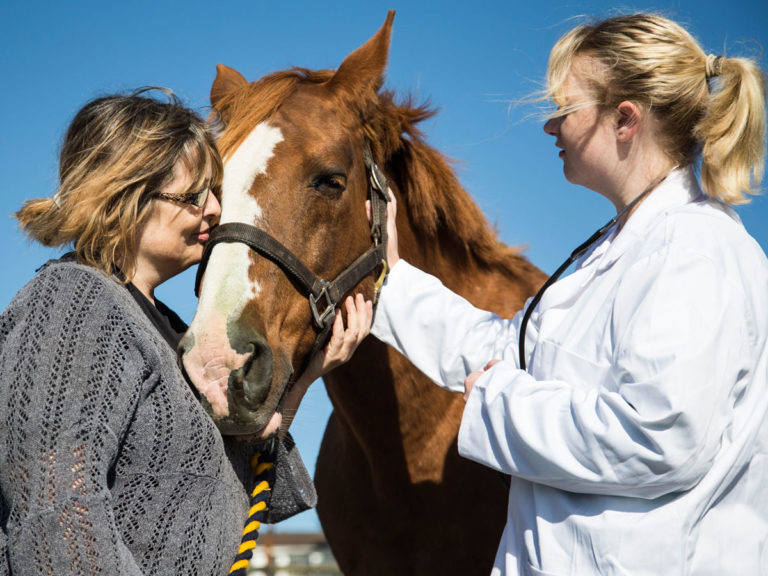As part of the biosecurity program at Hagyard Equine Medical Institute under the direction of Nathan Slovis, DVM, DACVIM, CHT, research is being conducted to help in the detection and prevention of infectious disease in our horse populations. One such study* on Clostridium perfringens (C. perfringens) involving Slovis, Hagyard’s Luke Fallon, DVM, and Gluck Equine Research Center’s John Timoney, MVB, MRCVS, MS, PhD, and the University of Guelph’s John Prescott, Vet. MB, PhD, resulted in the identification of the NetF toxin in foals in Kentucky. (This toxin is found in other parts of the world as well.)
Normally, Clostridium species, including C. perfringens, are present within the gastrointestinal tract in low numbers and do not cause disease. However, under certain conditions, horses can acquire C. perfringens that secretes toxins such as NetF that damage the cells of the gastrointestinal tract, resulting in enterocolitis and diarrhea. Similar to dogs, foals infected with NetF toxin can develop hemorrhagic diarrhea.
“This is exciting because now we have a test to look for NetF in horse feces,” said Slovis. That test is available through IDEXX Laboratory.
Interestingly, NetF also was identified in the C. perfringens vaccine developed by Fallon and Timoney—UK MF 05/00—which is available from Hagyard Pharmacy for use in the United States upon approval of the State Veterinarian. In a study that included 18 central Kentucky mares who had been vaccinated with Hagyard’s Clostridium vaccine, 12 (61%) showed a rise in antibodies for NetF. The study authors now intend to test whether increasing the amount of NetF in the vaccine will result in all mares showing increased immunity. Hagyard’s vaccine also produced raised antibodies against the B2 toxin (CPB2), the enterotoxin (CPE) and the alpha toxin (CPA).
*“NetF-positive Clostridium perfringens in neonatal foal necrotizing enteritis in Kentucky,” Mehdizadeh Gohari, I.; Parreira, V.R.; Timoney, J.F.; Fallon, L.; Slovis, N. and Prescott, J.F.; Veterinary Record, 10.1136/vr.103606, 2016
Founded in 1876, Hagyard Equine Medical Institute is one of the oldest and largest veterinary facilities in the world. Based in Lexington, Kentucky, Hagyard has more than 50 veterinarians and a well-educated and experienced staff of support personnel. The facility, located across the street from the Kentucky Horse Park, boasts superior ambulatory services, the world-renowned Davidson Surgery Center, McGee Medicine and Fertility Centers, Hagyard Laboratory, Hagyard Sports Medicine & Podiatry Center, hyperbaric medicine facilities, MRI, a dedicated Sport Horse facility and equine rescue services. Follow Hagyard on Twitter and Facebook.








